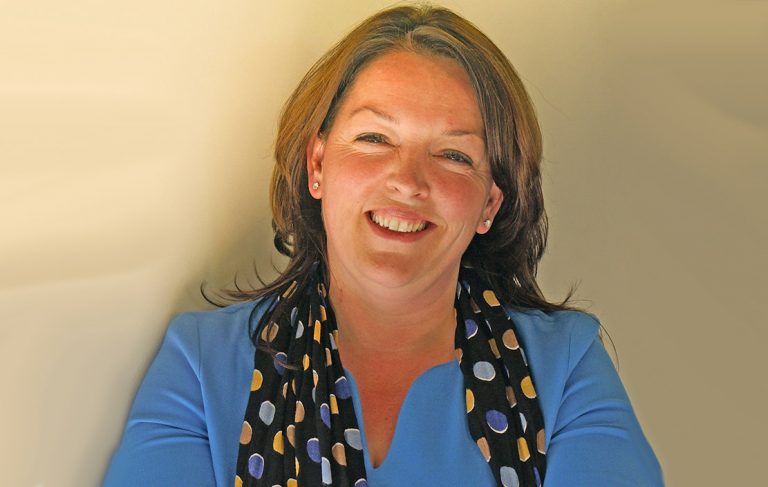Bridge engineers take the plunge to raise museum money
Six employees of Hull-based Spencer Bridge Engineering have helped to raise money and awareness for the Menai Heritage Museum by picking up their paddles to take part in the Great Strait Raft Run.
The Menai Heritage Trust honours the two world-famous bridges that span the Menai Strait – the Menai Suspension Bridge and Britannia Bridge.
The team, nicknamed the Menai Museum Pirates rowed from Y Felinheli to St Georges Pier Promenade on a hand-built raft made from redundant and recycled construction materials, raising over £800 for the museum.
Spencer Bridge Engineering also sponsored the children’s colouring competition during the event and handed out almost 100 medals and certificates to entrants, as well as presenting the three winners with their prizes.
Customer Relationship Manager Diane Rowe said: “This is the second year we have taken part in the Raft Race and once again it was a brilliant day enjoyed by all.
“We wanted to support the trust by raising both funds and awareness so that it can continue telling the story of the Menai and Britannia Bridges, the rich marine environment and outstanding beauty of the Strait.
“We know the projects we work on can have an impact on local communities and we are always available to answer any questions or concerns. Where possible, we like to get involved in community activities and local organisations.”
Candice promoted to role of Associate Solicitor
Sheffield property law firm Mason Thomas Law has marked its fifth anniversary by promoting legal team member Candice Birch to the role of Associate Solicitor.
Candice, a commercial property solicitor joined the firm in 2021. Since joining she has overseen a number of successful property transactions, including the high street expansion of the vintage clothing company Glass Onion.
She said: “I am really happy to develop my career with such a supportive team around me, and I am excited to help the firm grow in the future. So am pleased to help lots of happy clients from near and far and I am very excited to have a number of interesting projects in the pipeline.”
Candice’s promotion reflects her role in driving forward the business which was founded in 2019. In addition to Candice, the Mason Thomas Law numbers four team members including founder and solicitor Cathy Thomas. Earlier this year it was named as the Commercial Property Team of the Year at the Sheffield & District Law Society 2024 Legal Awards.
Cathy said: “Candice is an intrinsic part of Mason Thomas Law’s future, and her new role reflects this. We are a strong team that is going from strength to strength, I am delighted that Candice sees her future with the firm and will continue to grow her career with us.”
In addition to Candice’s promotion, Mason Thomas Law is marking its fifth year of business with a recruitment drive. In response to growth and surge in demand, the firm is recruiting a Conveyancing Assistant.
Cathy Added: “Our focus on property law together with a strong team has created high demand for our services. It is an exciting time for the business.”
AAB Wealth acquires Scots company
AAB Wealth, which has offices in Leeds, has acquired central Scottish Synergy Financial Planning.
The move means AAB Wealth will have assets under advice of more than £800 million. The combined team of 37 are spread across Scotland, England and Northern Ireland, all of whom are dedicated to helping families and individuals plan for their future.
The Synergy Financial Planning business led by David Neely, supports over 200 families across Central Scotland and shares the same evidence-based approach to investing as AAB Wealth.
Andrew Dines, Head of AAB Wealth, said: “Synergy Financial Planning is a fantastic addition to our expanding team. David has been instrumental driving the growth of the business and his approach to financial planning and client support match perfectly with our philosophy. I look forward to welcoming David and his team to AAB Wealth to continue delivering the very best financial planning advice for our clients.”
Deal not sealed for small business voters, as poll reveals over half could still be swayed in election
Millions of voters who run their own businesses are still to make a final decision on who they will back on polling day, according to a snap general election survey by the Federation of Small Businesses (FSB).
It reveals that 96 per cent of small business owners intend to vote, but one-in-five (20%) have yet to decide which party they will choose, while a further one-in-three (33%) have a good idea who they will vote for but could still change their mind.
FSB’s research found 90 per cent of small business owners are concerned business taxes could rise under the next Government, while 92 per cent of small employers said they were concerned a future Government could increase the costs and risks associated with employing people.
More than half (53%) say they are concerned about small business energy costs over the next five years; more than six-in-ten (61%) are concerned about the level of inflation over the next five years.
The findings come as FSB publishes a manifesto for small businesses and the self-employed – a blueprint for whoever forms the next Government aimed at driving economic growth and increasing the small business community from 5.5 million back to its pre-pandemic size of six million within the next Parliament.
FSB’s Policy Chair, Tina McKenzie, said: “Small business owners and the self-employed are a shrewd and motivated part of the electorate.
“They’re used to weighing up competing offers when running their businesses, and it’s clear from our research that when it comes to the election they’re looking for which of the parties has the most compelling pro-small business offer.
“Small businesses are the key to securing economic recovery, driving innovation, and creating jobs in all parts of the UK.
“Our small business manifesto sets out the measures needed to create the conditions for that to happen, many of which do not involve additional spending.
“We’re looking to all of those seeking to form the next Government to show their commitment to the millions of hard-working voters who run their own businesses, including through a Small Business Act so we have new legislation to protect small businesses on crucial issues such as late payment.”
MANIFESTO PROPOSALS
FSB’s manifesto for small businesses and the self-employed sets out more than 150 specific proposals to cover the period of the next Parliament. These include:
Committing to a Small Business Act, legislating to help small firms by:
- Enshrining in law measures to clamp down on big businesses with poor payment practices towards their smaller suppliers.
- Improving small businesses’ ability to access finance, including closing loopholes in protections for those giving personal guarantees.
- Making a 33 per cent SME statutory public procurement target, increasing the involvement of small businesses in taxpayer-funded projects.
- Fundamentally reform business rates to help small businesses in all sectors.
- Rule out increases in tax on dividends for directors of limited companies and National Insurance for the self-employed.
- Restore the small profits threshold for corporation tax to the previous level of £250,000 and pledge not to increase the small profits rate.
- Automatically increase the employment allowance with the National Living Wage.
- Maintain current co-investment rules to back small business apprenticeships.
- Reintroduce universal work experience into secondary schools.
- Increase the number of start-up loans offered by 5,000.
- Create a new ‘new enterprise allowance’ for those out of work looking to start a business.
- Make it easier for people working for themselves to get a mortgage and save for their retirement.
- Introduce a new Small Housebuilder Strategy, to ensure sufficient capacity to achieve ambitious housebuilding targets.
- Commit to a target that at least half of all direct Government funding of private Research and Development (R&D) goes to SMEs.
- Provide consumer-style protections for smaller businesses when it comes to the energy market.
CBRE makes changes to Northern leadership team
Global real estate advisor, CBRE, has made strategic changes to its Northern leadership team. John Ogden is now responsible for all UK Regional Markets, while Joe Rigby has been promoted to Managing Director (MD) of the North, overseeing CBRE’s Manchester, Liverpool, and Leeds offices.
Based in Manchester, Ogden will continue to have an active role in overseeing the Northern region but will also take on greater responsibility across CBRE’s wider regional UK business, with overall responsibility for Scotland, the North, and the Midlands & South, and all the sectors and service lines in these locations.
Rigby, who joined CBRE in 2014, has held several leadership roles within the company including Head of Occupiers Services for the North in 2019, before a promotion to Head of Office Agency for the North in 2022.
Rigby will now transition to Managing Director of the North, supporting Ogden, while remaining laser-focused on client solutions in the region. The news follows Colin Thomasson’s recent appointment as Head of UK Investment Properties.
John Ogden, Head of UK Regional Markets, CBRE said: “Joe is regarded as a market leader by clients, as well as the wider industry across the North, so he is well-placed to step up and drive the growth of our Northern business going forward.
“Simultaneously, it’s more important than ever that we are delivering a cohesive and integrated offering to our clients, across all our service lines and sectors. I look forward to continuing to work with Joe, as well as with all the teams across CBRE’s wider regional business, to deliver best-in-class, holistic solutions for our clients.”
95 redundancies confirmed as administrators appointed to financial services group
Redundancies have been made at a Leeds-headquartered financial services group following the appointment of administrators.
Ed Boyle, Howard Smith and Rob Spence of Interpath Ltd have been appointed as joint administrators of Tenet Group Limited (TGL) and Ed Boyle and Rob Spence have been appointed as joint administrators of its subsidiary companies Tenet Limited (TL), TenetConnect Ltd (TCL) and TenetConnect Services Ltd (TCSL) by the companies’ directors.
Tenet Network Services and TenetConnect are both trading styles of TenetConnect Ltd and TenetConnect Services Ltd.
Tenet Mortgage Solutions Ltd and Tenet Compliance Services Limited have ceased to trade but these entities have not entered into administration.
Tenet Financial Services Limited (TFSL) has ceased to conduct regulated activities and it has also not been placed into administration.
Tenet Employee Benefit Solutions, a non-unregulated service within Tenet Financial Services Ltd, and Paragon Insurance Company (Guernsey) Limited continue to operate as normal.
Companies within the Tenet Group provided a range of financial services to private individuals, as well as providing support services and facilities to firms of financial advisers.
In the recent past, the Group has substantially wound down its operations by selling various businesses within the Group, and also by the transfer out of its network of independent financial advisers.
This included the sale of TenetLime Limited, the mortgage and protection advisory network, to LSL Property Services plc on 2 February 2024, the transfer of financial advisers of TCL and TCSL to 2plan Wealth Management Limited which has been ongoing in recent months, and the sale of Tenet & You Limited, a national IFA practice, to My Pension Expert Limited on 28 May 2024.
The Group employed approximately 147 staff across the UK at the date of the appointment of the administrators.
While the joint administrators have retained 52 staff to assist them while they manage the wind down of the businesses, 95 redundancies have been made. The joint administrators will be working with the employees affected over the coming days to provide them with any and all support they need.
Howard Smith, Managing Director at Interpath and joint administrator of Tenet Group Limited, said: “We’re now focused on winding down the business and we are in contact with the FCA, FSCS and stakeholders to ensure an orderly process.”
Council adopts new conservation area for Hull
Hull City Council has adopted the new Paragon Conservation Area. The council’s cabinet approved final changes to the former Jameson Street Conservation Area last month.
This included boundary extensions, which now contains additional areas of Jameson Street, King Edward Street, Prospect Street, Ferensway and Waltham Street, as well as renaming it Paragon Conservation Area.
A new Character Appraisal and Management Plan (CAMP) has been adopted, whilst additions have been made to the Hull Local Heritage List.
The new conservation area is part of the council’s project to update and adopt CAMPs for all 26 of its conservation areas in a bid to preserve and enhance them, and to provide guidance on future planning applications.
It is aimed at creating quicker and well-balanced planning application decisions, as well as promoting the heritage values of the council and the importance of the city’s architecture.
Paragon is the first conservation area to have been completed as part of this.
Alex Codd, the council’s assistant director for economic development and regeneration, said: “It is pleasing that the council has been able to adopt the new Paragon Conservation Area.
“This is the first step in improving our city’s 26 conservation areas and ensuring that they receive the respect they deserve.”
Public consultation on the changes was undertaken in 2023 and notification of the adopted changes is currently being made to property and business owners, residents, stakeholders and prospective developers within the former Jameson Street Conservation Area and the extended Paragon Conservation Area.
Seven million people have used GenAI for work
Over 18 million people in the UK have now used Generative AI (GenAI), according to new findings from Deloitte’s 2024 Digital Consumer Trends research, based on a survey of 4,150 UK adults aged 16-75.
In the UK, three in five (60%) people are now aware of GenAI and over a third (36%) have used a GenAI tool, an increase of 26% (13 million people) from May 2023. However, notable gender and age gaps were apparent in the findings with 43% of men having used GenAI, compared to just 28% of women. The technology is also primarily used by younger groups, with 62% of people aged 16-34 having actively used it, compared to only 14% of 55-75 year olds.
GenAI in the workplace
One in seven people (14%) have used GenAI for work, equating to around seven million people, increasing from four million a year ago. Of those using GenAI for work, three in four (74%) claim a productivity boost of either ‘a fair amount’ or ‘a great deal’. However, just 27% of those in work claim that their employer encourages the use of GenAI, suggesting that the majority may be doing so without their employer’s official endorsement.
Among those who have used GenAI for work, the most popular reasons are generating ideas (44%) and looking up information (41%), followed by creating written content (39%), writing/editing emails (38%), and summarising text (37%).
Paul Lee, partner and head of technology, media and telecommunications research at Deloitte, said: “Employees are moving faster than their employers when it comes to adopting GenAI to transform how they work. While workers are signalling that GenAI can boost their output and save them time, many employees may not be supported, encouraged, or explicitly endorsed to use the technology by their organisation.
“While the most popular uses tend to be generating ideas and looking up information, these may not be optimal applications of GenAI, given known issues such as hallucination. Employers need to step up and invest in tools and governance to better support their staff in using this technology. Additionally, usage has to thrive among all types of employees, not just certain demographics, if the tools are to be most effective.”
Improving AI fluency is vital for businesses
The survey also demonstrates that the frequency of use of GenAI is variable. Amongst those using the technology, one in three (36%) do so either daily or weekly, whereas two in five (41%) use it less than monthly. Of these low-frequency users, 23% did not find it helpful, 19% were not satisfied with its answers and 18% claimed they did not know how to use it well.
Meanwhile, many of those aware of GenAI are not familiar with its risks, including potential inaccuracies and biases. Among those aware of GenAI, 25% believe it is always factually accurate, and 26% think it is unbiased. Those who have used GenAI are even more likely to be unaware of risks, as 36% of users believe it is always accurate, and 36% think it is unbiased.
However, among those aware of GenAI, more than half (59%) would be less inclined to trust an email if they knew it was created with GenAI. Similarly, 56% would be less inclined to use a customer service if they knew they were conversing with a GenAI assistant.
Costi Perricos, partner and global Generative AI lead at Deloitte, said: “Whether organisations have supportive or strict policies on the use of Generative AI, it is clear that improving business AI fluency is vital.
“GenAI deployment should be accompanied by a thorough learning and development programme, including training on ethics and responsible use, and guidance on how to get the most value from GenAI tools. HR leaders have a key role to play, creating a clear framework in which their workforce can operate.”
Lee concluded: “In 2024, companies ought to be asking what they should do with GenAI, rather than focusing purely on everything it could do. The C-suite is increasingly looking for proof of return on investment in technologies before funding large scale deployment across their workforce. However, there are barriers to this, as quantifying employee productivity can be difficult, particularly in knowledge-based roles.
“Businesses are also exploring customer facing GenAI tools but should be aware that they may face some initial hesitance as fluency improves. Customers may be more welcoming of GenAI if they can be convinced that it enables a better, faster experience, with higher quality answers. Business leaders must fund and drive this education.”
City Council awards £370k for property renovations in Hull
Hull City Council has £370,000 to property renovation company Giroscope to bring as many as ten empty homes back into use as social housing.
Martin Newman, Giroscope Coordinator, said: “Giroscope is pleased to continue its partnership working with Hull City Council. This grant will assist our work in bringing back empty and dilapidated properties into use as social housing. The demand for housing in the city at the moment is greater than ever and we are proud to be working with the council to develop new homes”
West Hull-based Giroscope, which specialises in buying and renovating long-term empty homes, has received the funds from the Right to Buy Replacement Programme Fund.
Mark Nearney, Assistant Director for Neighbourhoods and Housing said: “It’s imperative that we use every tool at our disposal to provide as many houses as possible for social rent. As well as building our own houses, it makes sense that the council works with partner organisations like Giroscope when opportunities such as this arise.
“Empty homes blight local communities. Bringing them back into use not only provides much needed, quality homes for rent, it improves the look of the area and reduces the problems that attract anti-social behaviour and pest infestations.”
Groundbreaking ceremony marks realisation of dream for Rob Burrows MND centre
The ground-breaking ceremony for construction of the Rob Burrow Centre for Motor Neurone Disease has taken place at Seacroft Hospital
The event was attended by many of the project’s supporters, including clinical staff, fundraisers, architects, patients and their families, Rob’s parents and sisters, and Kevin Sinfield.
With the build expected to take around a year, work has now started. This news is joined by an update from Leeds Hospitals Charity that there is now £1 million left to reach the £6.8 million fundraising target.
Rob left this message: “Today marks a significant milestone not just for me, but for everyone battling motor neurone disease in Leeds and the surrounding region. This care centre, named in my honour, stands as a beacon of hope and support. It’s a place where patients will find not only medical assistance but also the compassionate care and understanding they deserve, for them and for their families. Our journey with this disease is challenging, but together, through this centre, we will create a community that uplifts and empowers each other. My dream is that every person who walks through these doors feels supported, understood, and never alone. This centre is for all of us, our shared sanctuary.”
Dr Agam Jung, Consultant Neurologist at Leeds Teaching Hospitals NHS Trust, who leads the MND team at Seacroft Hospital says: “I can’t believe that we have reached this moment. It has been an incredibly fast-paced journey from my initial idea and discussions with Rob and Lindsey Burrow in 2020 to breaking ground now in 2024! I have so many emotions at present, gratitude being the foremost and of course immense pride as well. What we thought was a pipe dream in 2020 will soon become a reality taking us a step forward for our patient care and MND services.”
Leeds Teaching Hospitals NHS Trust announced a plan to build a new centre for MND patients and Leeds Hospitals Charity launched their fundraising appeal in September 2021. During this time, Rob Burrow and Kevin Sinfield have taken their awareness-raising and fundraising activities for the MND community to the highest heights, referrals to the Leeds MND service have doubled and technology and research have moved forward.
The new building represents a flagship centre in the North of England, where MND patients can be seen, their families and carers can be supported and where clinical specialists can work together and agilely adapt to the ever-changing advances of the condition.












